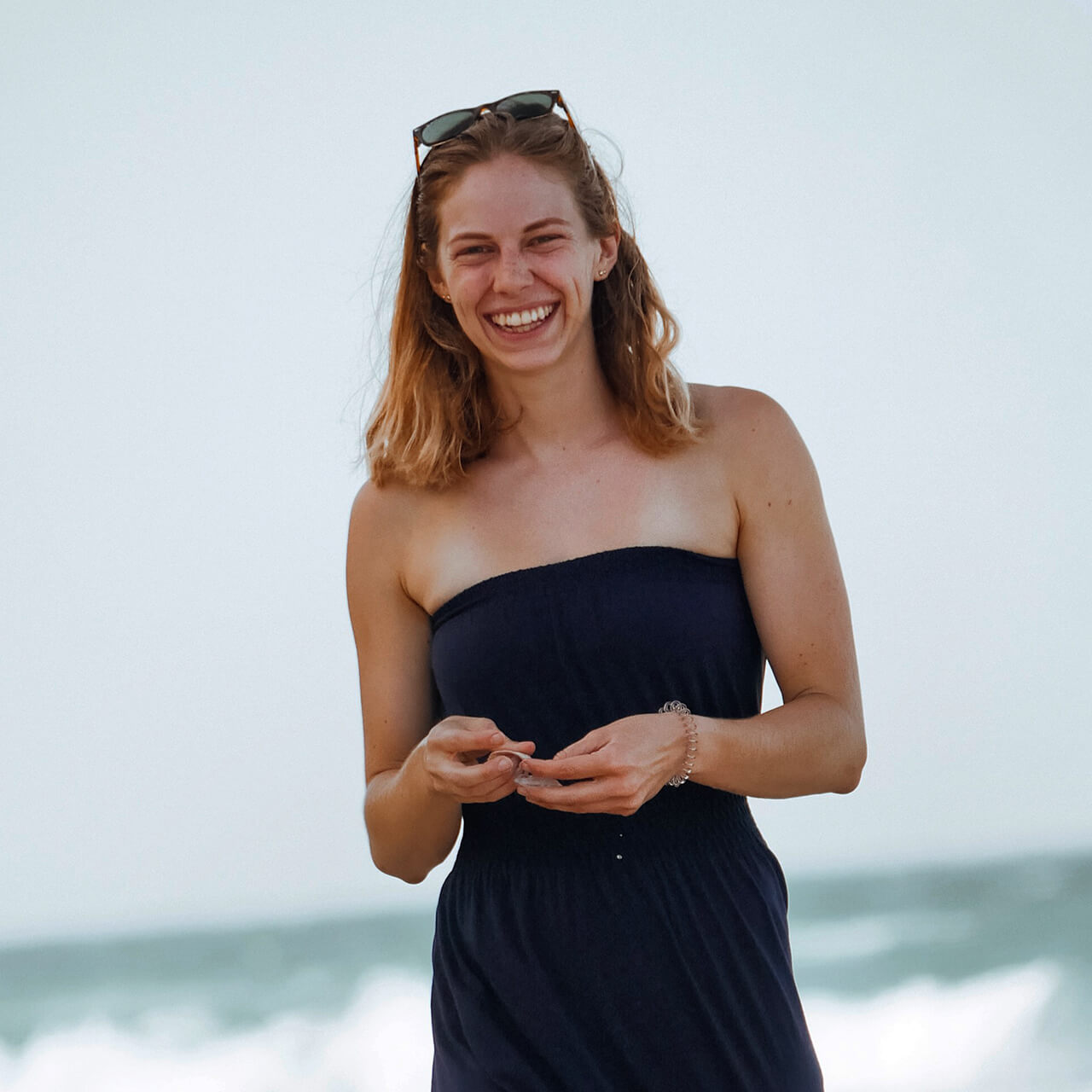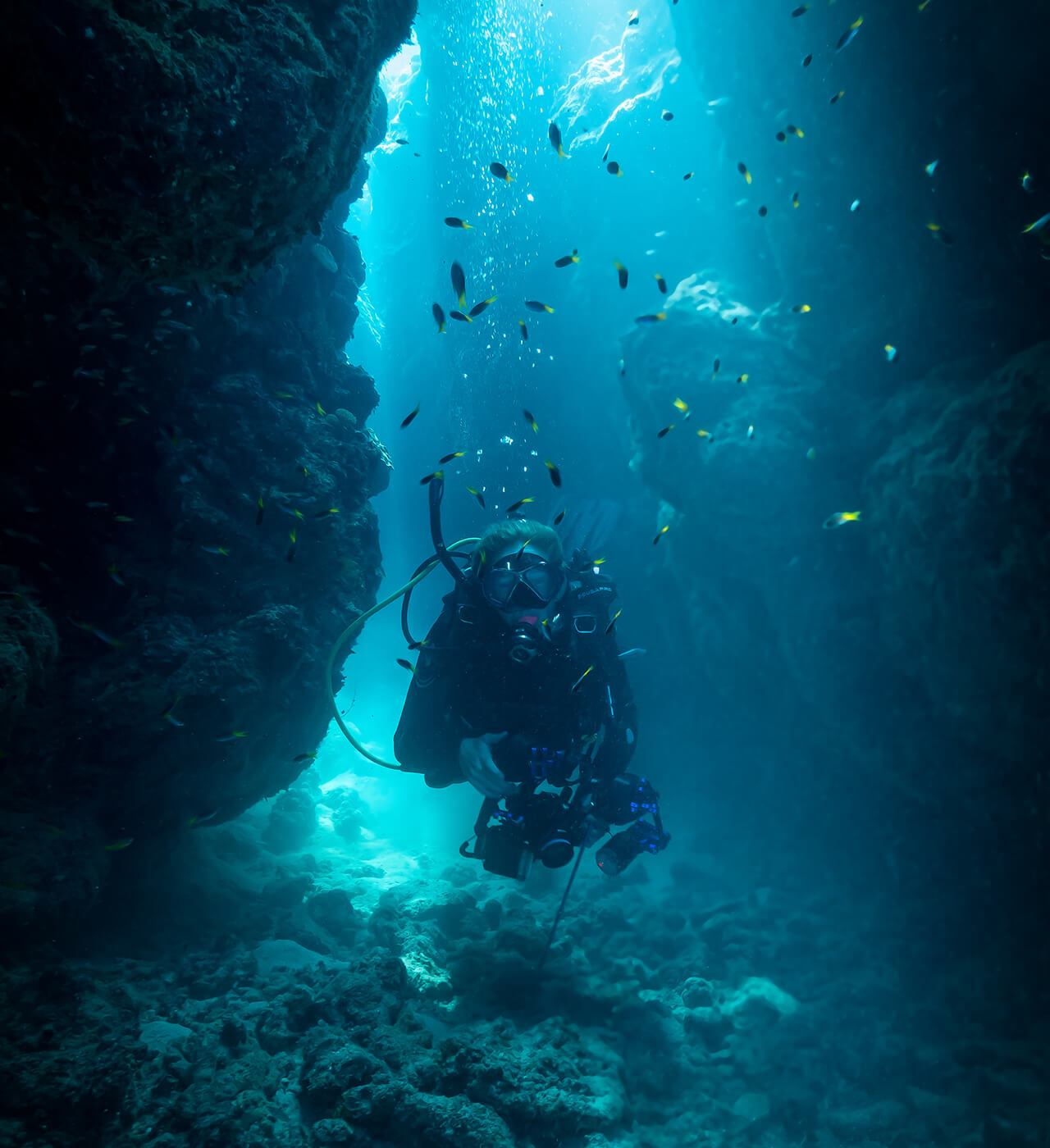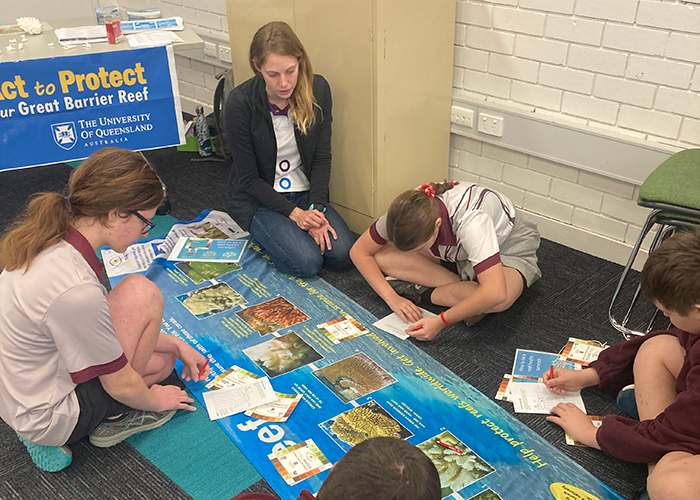Abigail Shaughnessy breaks the surface of the bright, blue waters off the idyllic shores of Lizard Island.
She readjusts her goggles, takes a deep gulp of air, and dives down again.
It doesn’t take long for the second-year PhD student to reach her “laboratory” – the Great Barrier Reef.

“I’ve loved the ocean ever since I was a child,” Abigail said. “My parents were scuba divers, so we regularly went on diving holidays.
“I always knew some form of marine biology would be in my future.”
Abigail is studying the colour vision of reef fish and how it adapts to seasonal shifts between winter and summer within the Marshall Lab at the Queensland Brain Institute (QBI).
“During winter, you have a clear, broad spectrum of light which is very ultra-violet dominant,” Abigail said.
“While in summer, the water is more algae-dominant, and the water is a much greener environment.
“I’m trying to understand the plasticity, or the ability, of a fish’s brain to adjust their vision in these differing environments.”
Abigail said that by understanding the visual systems in other animals, we can better explain our visual capabilities and how we interpret our world.
Grant funding advances vision research
This research helped Abigail land a Holsworth Wildlife Research Endowment Grant from the Ecological Society of Australia.
The grant will allow Abigail to spend more time on the reef at the Lizard Island Research Station, employing an electroretinogram (ERG), a diagnostic test that measures the electrical activity of the retina in response to a light stimulus.

“The Lizard Island station is amazing,” Abigail said. “The facilities are great and so is the support.
“I’m just starting, getting set up, getting familiar with all the technology and equipment.
“I’m currently looking at the winter season and will look at the summer season in February.
“Being out in the field reminds you of why we do research.”
Helping students learn about science, reef
More than 1,200kms away, a group of students wonder if their dreams of becoming researchers will ever be realised.
The rural Queensland town of Longreach is a far cry from the tropical waters of Far North Queensland, but that’s where Abigail needed to be to indulge her second career passion: education.
“Most of these kids are not exposed to, or lack inspiration, for STEM programs,” Abigail said.
“Some of them are really excited about science, but others feel it’s not accessible to them.”
To fix this disconnect, Abigail – alongside fellow QBI PhD student Matt Kenna – joined the Flying Scientists program earlier this year.
Abigail signed up for the program – which promotes Science, Technology, Engineering and Mathematics (STEM) awareness events in remote locations – as part of CoralWatch, a citizen scientist program raising awareness on the health of reefs around the world.
“I’m excited about science and enjoy teaching,” Abigail said.
“You get into interesting conversations with these kids. You learn what’s important to them and it makes you reflect on your journey.
“It’s extremely rewarding, and if you get one or two of them excited about science, you feel like you’ve done a good job.”

Combining these two passions – research and education – are the cornerstones of Abigail’s career plans.
Earlier this year, Abigail gave a talk year at the International Congress Neuroethology in Portugal – her first conference – and has plans on undertaking a post-doctoral once she’s completed her PhD.
But inspiring the next generation of scientists is not far from her mind.
“I’d love to continue my research about vision,” Abigail said.
“But I’d also love to continue to help students and get them excited about STEM.”
But a decision on whether a career in science, teaching or both can wait for another time.
Perhaps next time she comes up for air.
